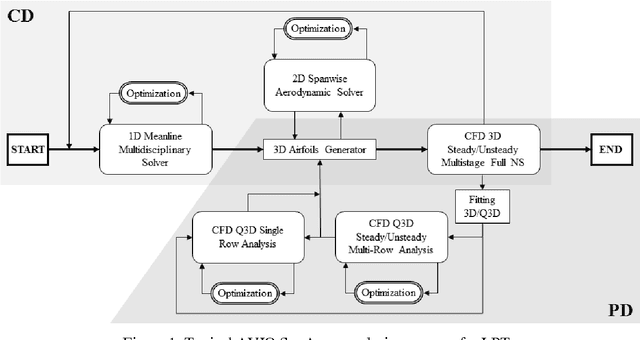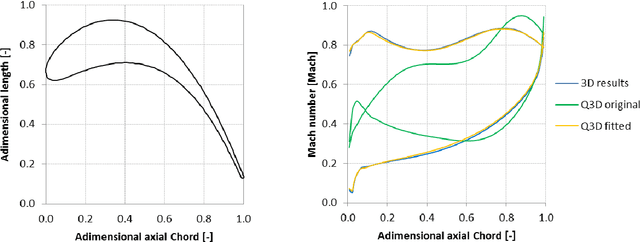Lorenzo Dal Mas
Multidiscipinary Optimization For Gas Turbines Design
Feb 03, 2014



Abstract:State-of-the-art aeronautic Low Pressure gas Turbines (LPTs) are already characterized by high quality standards, thus they offer very narrow margins of improvement. Typical design process starts with a Concept Design (CD) phase, defined using mean-line 1D and other low-order tools, and evolves through a Preliminary Design (PD) phase, which allows the geometric definition in details. In this framework, multidisciplinary optimization is the only way to properly handle the complicated peculiarities of the design. The authors present different strategies and algorithms that have been implemented exploiting the PD phase as a real-like design benchmark to illustrate results. The purpose of this work is to describe the optimization techniques, their settings and how to implement them effectively in a multidisciplinary environment. Starting from a basic gradient method and a semi-random second order method, the authors have introduced an Artificial Bee Colony-like optimizer, a multi-objective Genetic Diversity Evolutionary Algorithm [1] and a multi-objective response surface approach based on Artificial Neural Network, parallelizing and customizing them for the gas turbine study. Moreover, speedup and improvement arrangements are embedded in different hybrid strategies with the aim at finding the best solutions for different kind of problems that arise in this field.
 Add to Chrome
Add to Chrome Add to Firefox
Add to Firefox Add to Edge
Add to Edge